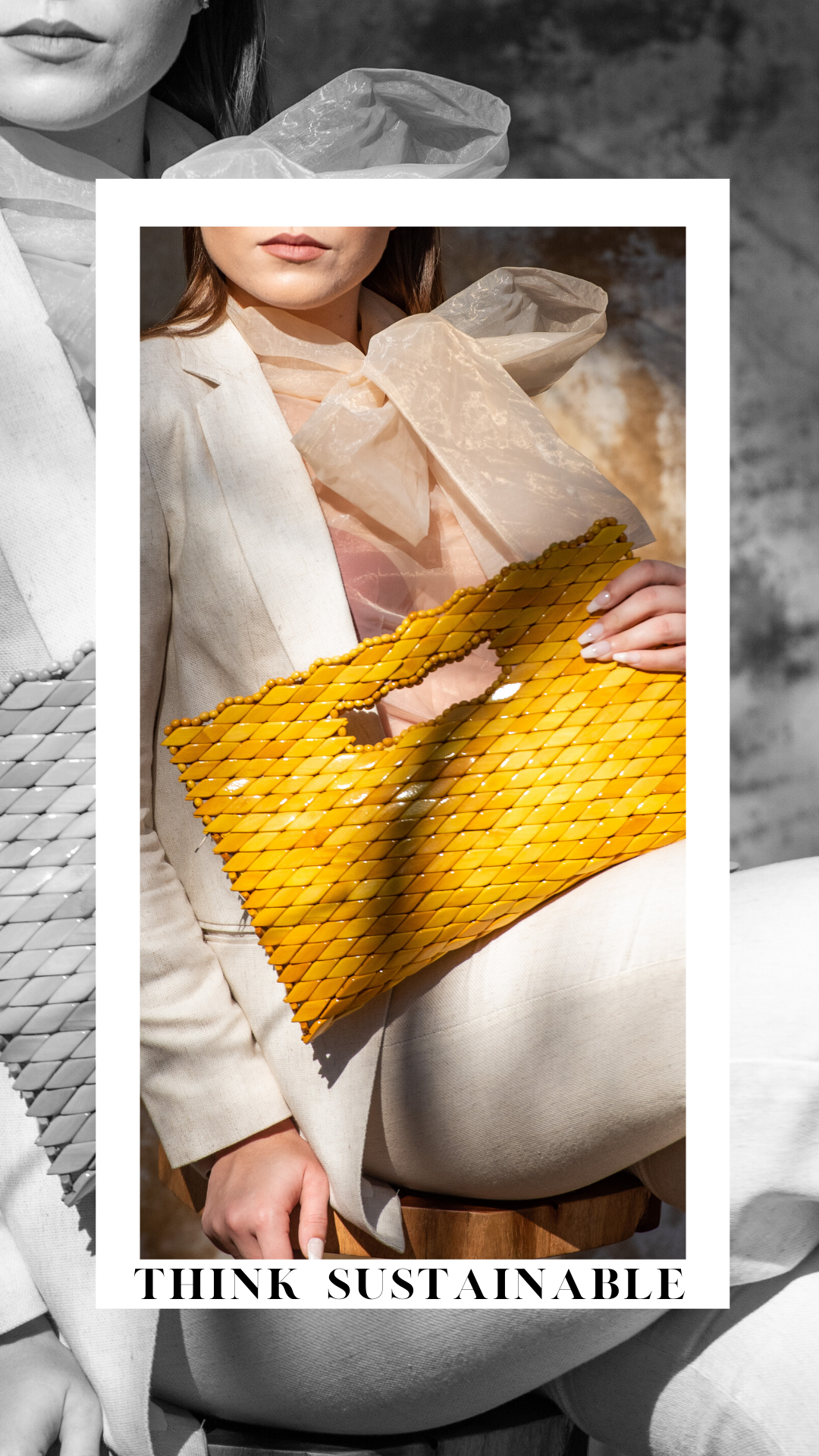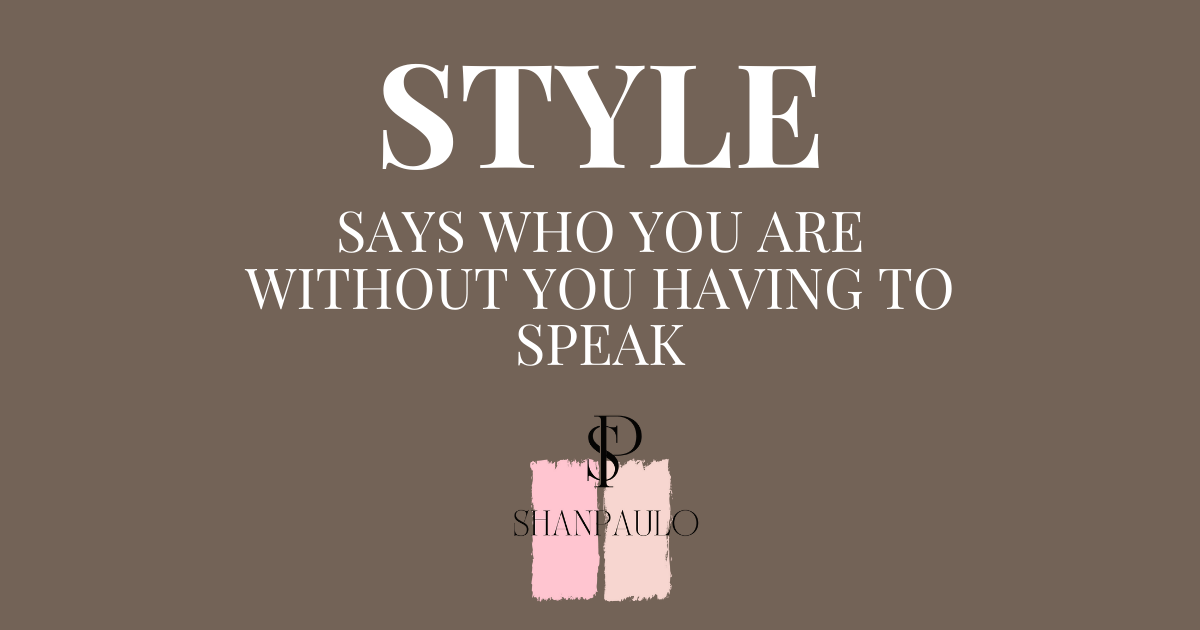You Are What You Wear
Why Sustainability is Fashion-Forward
Let’s be honest, most people choose a purse because of the brand. The flash of a gold Gucci or Coach logo is like a visual cue, telling everyone who you are and what you stand for. But what if the very thing you think is making you seem enviable is actually doing the opposite? Have you ever considered the idea that social norms and mores are changing? Maybe the handbag or purse you think is making you look fashionable and on trend is actually labeling you as someone who is out of touch with current global realities?
The future is compassionate.
The real trend is obvious, if you take the time to look. Major cosmetic brands are advertising that they do not use palm oil, the harvesting of which is responsible for massive rainforest deforestation. The United States has banned the use of microbeads in the production of household and beauty products because of the number of fish species that have entered the endangered list due to these microplastics. Companies that make use of unpaid internships are being exposed as exploitative, and LUSH recently announced that they are going off social media until Facebook reduces the negative impact they have on people’s lives, especially young women, with their algorithms that boost conflict and negativity.
Companies know that it is no longer acceptable to carry on with business as usual. If they wish to capture the best designers, retail outlets and the attention of a new generation of customers, they need to figure out how they are making the world a better place.
The fashion industry is no exception.
Research conducted by the UK group Labour Behind the Label published an exposé in 2020 of factories from Britain to Pakistan that were supplying brands like Boohoo, H&M and TopShop with garments and paying laborers, mostly women, approximately one dollar a day. Another group, the Clean Clothes Campaign, says, "The garment industry is built on poverty wages and sweatshop conditions. These working conditions are no mere flaws of individual factories, but they are driven by an industry practice of pushing for the lowest price and shortest lead times in an eternal race to the bottom." Research conducted by the UK group Labour Behind the Label published an exposé in 2020 of factories from Britain to Pakistan that were supplying brands like Boohoo, H&M and TopShop with garments and paying laborers, mostly women, approximately one dollar a day.
Another group, the Clean Clothes Campaign, says, "The garment industry is built on poverty wages and sweatshop conditions. These working conditions are no mere flaws of individual factories, but they are driven by an industry practice of pushing for the lowest price and shortest lead times in an eternal race to the bottom.”
Many people are simply unwilling to support companies that do not align with their values. In response to this, even Gucci has created a Gucci Off the Grid line of backpacks and bags as part of their Equilibrium promise. But how long will people actually support these major industry giants? Gucci may have a sub-brand that is sustainable, but how will that compare with a company that had sustainability at its core from day one?
All of this has been accelerated by The Great Pause.
The global pandemic has been called The Great Pause by thought leaders such as Joe Pine, who coined the term. According to Pine, people across the globe have been shaken by the pandemic, and as a result, they are reconsidering their value system. Added to this moment of pause, the global climate crisis has caused wildfires, “atmospheric rivers”, droughts, and flooding. These events are impossible to ignore, and many people are wondering how they can change their day-to-day existence so that they are part of the solution rather than the problem. Veganism is on the rise, which is a practice that extends to leather clothing and accessories as well. Many people are rejecting any and every product that is harmful to animals.
Statistics about how much meat and leather products are accelerating climate change are undeniable. According to the United Nations Food and Agriculture Organization, one third of the surface of the planet is dedicated to livestock and their feed. The meat-eating, leather buying lifestyle is becoming more and more unsustainable as the population of Earth continues to grow.
Luckily, solutions are on the rise too.
Just as electric vehicles such as the Tesla are outpacing Ford’s Mustang as the car of choice for the fashionably rich, alternatives to mass marketed luxury goods are also on the rise. More and more people are using their wallets to state their values. Companies that are not transparent about how their goods are produced, how much their workers are paid, or the impact they have on the environment are falling out of favor. Saying nothing will not be an option much longer.
This is why we created our handbags with sustainability in mind right from the start, years before this was “on trend.” We wanted to create a beautiful handbag first of all, but we believe that how the bag is made, from the materials used to the wages paid to the laborers, is part of what makes a bag beautiful. Sustainability is not an add-on feature for us. It was part of our aesthetics from day one.
The wood that is used in our unique patterned design is created from reclaimed materials. In addition, we partner with organizations such as One Tree Planted, to ensure we are off-setting the carbon footprint created by our delivery vehicles. We pay equitable wages to our workers, right down to the South Americans who source the materials that go into our purses. We do not believe that the global South should gratefully and cheaply supply our demands, but that each village that works with us should profit equally from our transactions.
One day, what you wear will not be a symbol of how much money you have, but how awake you are to the intersection of poverty, descrimination, and environmental degradation. Companies who remain deaf and blind to the growing trend towards compassionate stewardship of the Earth and each other will slowly fall out of favor and be eventually forgotten. In the future, your handbag will make a “statement,” but it will be one that says you care about the world you live in, and want to build a better future for everyone, not just the very rich.
Sources:
https://www.euronews.com/green/2020/07/10/exploitation-and-sweatshops-are-at-the-core-of-fast-fashion-it-s-time-to-dismantle-the-sys








